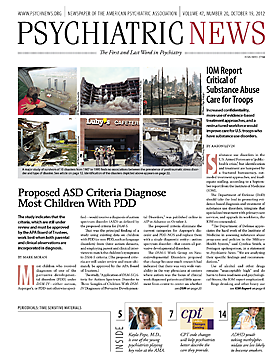Technology has been exploding onto the health care scene over the last couple years, in part due to federal incentives for hospitals and physicians to adopt electronic health records. Health information technology (HIT) is also the infrastructure underlying health information exchanges (HIEs), accountable care organizations (ACOs), and mobile health apps, such as those on iPads, iPhones, and Android smartphones. The purpose of this new column is to help all of you get up to speed on HIT and understand its effect on health policy discussions and on your practice, as well as have a place to turn to when considering your HIT decisions (and help you understand all the acronyms!).
I’ll be asking others to write about different aspects of HIT. Over the next few months, you’ll see articles about “meaningful use,” HIEs, practical tips on how to use a shared view of your patient’s electronic health record (EHR) to increase communication with your patient, increasing the privacy of personal health information, and selecting an EHR system. I’ll also be looking for first-person accounts of APA members who have gone through the process of adopting an EHR, including the good, the bad, and the ugly (contact me if you’ve got a story at
[email protected]).
APA has been a leader in addressing the impact of HIT on patients and on the practice of psychiatry. One of these efforts comes from the Committee on Electronic Health Records (CEHR), which I chair. The CEHR includes about 20 APA members with various expertise and interests in health IT. The committee meets in person in May and November and otherwise meets monthly by conference call.
We have a major initiative on EHRs that we have been working on for some time. One of the major challenges in switching from paper to electronic is that most psychiatrists are in solo private practice and do not have a team of support staff who can help them sort through their options, decide what capabilities and features are most important to them, and select and implement an EHR. “Which EHR should I use?” is a common question I hear. This is like asking “Which car should I buy?” It depends on your driving preferences, budget, and what you use your car for. If you have two toddlers in car seats, you would probably want to avoid a two-door Mini Cooper convertible.
The best way to decide which EHR system to use is to ask other psychiatrists whose practice and preferences are most similar to yours. This is what the CEHR is building. We are now testing out the ability for APA members who have experience with a particular EHR product to rate that product across a number of features and characteristics. In partnership with AmericanEHR, we will be able to see an aggregate view of many ratings for various EHR products, helping us all to make better decisions and narrow the field of possible products to review. These ratings are only as good as what our colleagues put into it, so stay tuned and get ready to share with your peers.
•.
Minutes of the committee’s meetings
•.
Information on the federal EHR incentive programs, including meaningful use, certification, clinical quality measures, and a host of FAQs
•.
Information and resources on privacy and security issues in health IT
•.
Numerous resources and links to organizations, including resources that help in selecting an EHR
•.
Slide presentations from an APA 2012 annual meeting workshop conducted by CEHR members, including slides on EHR certification, usability, functionality, health information exchanges and sensitive information, and challenges in using EHRs.
I look forward to presenting these informative columns in future issues of
Psychiatric News.

Steven R. Daviss, M.D., is chair of the APA Committee on Electronic Health Records, an Assembly representative for Maryland, a member of the Health Standards Committee at URAC, and a HIE Policy Board member at the Maryland Health Care Commision. He is also a clinical assistant professor at the University of Maryland, chair of the Department of Psychiatry at Baltimore Washington Medical Center, and coauthor of the book Shrink Rap: Three Psychiatrists Explain Their Work. Dr. Daviss tweets at@hitshrink and blogs at HIT Shrink.


